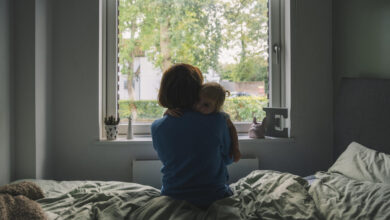Health News
39 seconds ago
Grab this anti-aging body lotion for just $11
There aren’t many of us who like it, but it’s a fact of life: As the body gets older, the skin starts to loosen and wrinkle. Of course, there are habits and helpers that can help us…
Health News
12 hours ago
This 2-in-1 air filter and aromatherapy diffuser is my secret weapon against pet odors, and it’s $30 (that’s 50% off)
You can sweep, vacuum and mop over and over again, but a dog’s scent is their mark on the world, and it’s going to linger wherever they live. The way I see it, you can either lean…
Health News
1 day ago
This 10-in-1 air fryer and toaster oven from Kalorik — the brand Courteney Cox uses — is down to $160
Having to preheat your oven in the summer is almost as unbearable as being stuck in car with a child who’s just discovered “The Song That Doesn’t End.” (Sorry if that’s now playing in your head.) That’s…
Health News
2 days ago
Salma Hayek’s No. 1 skin-care trick hinges on an unexpected ingredient — get it on sale for just $15
Salma Hayek might be 57 (yes, seriously), but she looks ageless. According to the superstar, her youthful glow is au naturale. “I have no Botox, no peels, no fillers,” the actress told Elle. But that doesn’t mean…
Health News
2 days ago
These lightweight knives are designed to reduce hand fatigue — a 15-piece set is just $44 (that’s 45% off)
When you’re chopping veggies and proteins, having the right knives can make all the difference between enjoying meal prep and absolutely dreading it. Some knives are really heavy, which can make slicing and dicing feel tiresome after…









